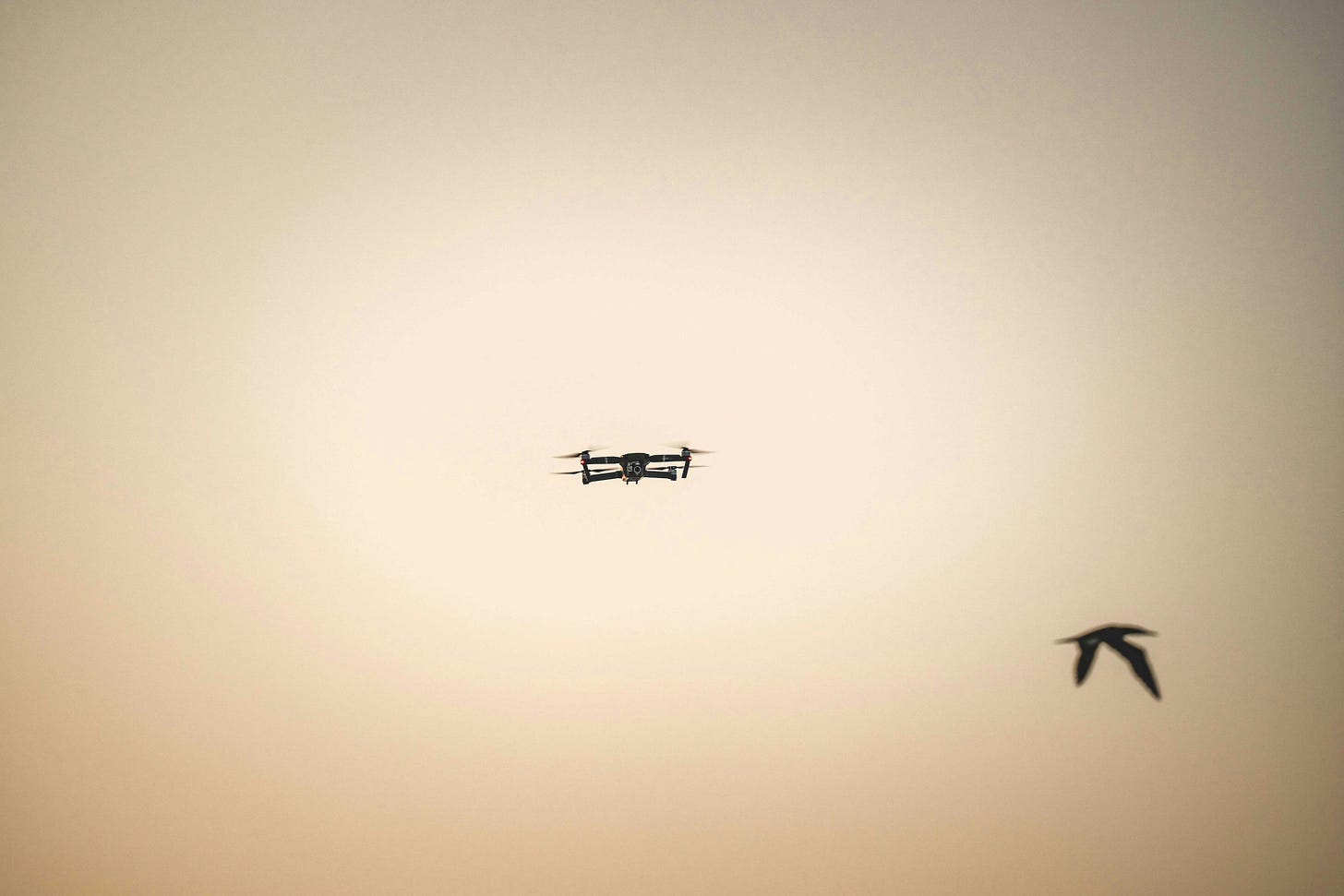Do it without people
The Netherlands just funded 600,000 drones for Ukraine. Not tanks, not guns. Drones. Welcome to warfare without foot-soldiers.
Meanwhile, half the organisations I work with are grappling with the same question as the : how much work can we do without people? AI now handles customer service, algorithms manage supply chains, and bots write our first drafts.
The parallel is striking.
And the speed is notable. Already, unemployment among 20- to 30-year-olds in tech-exposed occupations has risen by almost 3 percentage points since the start of 2025. These are disproportionately affecting people in finance, software development and customer support. Marc Benioff, Salesforce’s CEO put it more bluntly than anyone: “I need less heads”.
Both military strategists and CEOs have discovered that removing humans from certain processes doesn't just reduce costs. It reduces unpredictability, fatigue, and emotional decision-making. Of course, it also removes creativity, empathy, and the ability to read between the lines.
Question: What work are you consciously removing people from, and what essentially human elements are you unconsciously removing with them?
Up or In?
I fly a lot. Qantas told me this week that I flew with them 30 times in the past year. So I’ve whiled away my downtime in lounges by picturing how any airline organises its thinking across different time horizons.
Ground crews think in turnarounds in minutes: every second matters when you're getting passengers off one plane and onto the next. Route planners think seasonally: summer holiday routes, business peaks. The C-suite thinks in decades: fleet modernisation, route expansion, competitive positioning.
For me to take those 30 flights without incident, each level needs to focus on what it does best, without getting pulled into decisions that belong elsewhere.
That’s easy to say, isn’t it? And, hardly a revelation.
But I often observe a tension.
Leaders who've climbed high enough to think strategically choose instead to think tactically. Not because they have to, but because tactical problems offer something strategic problems don't: immediate feedback, clear solutions, and the satisfying feeling of being useful right now.
To stretch the flying metaphor a bit too far perhaps, you could think of this as "reverse altitude sickness." The higher you climb, the more comfortable you become with ground-level problems. Instead, the higher you climb, the more you should insist ground-level problems are distributed to ground-staff.
Question: What operational task are you personally reluctant to delegate because it keeps you from the harder strategic work you should be doing?
Trust me
I work almost exclusively with organisations you should trust. Governments. Non-profits. Regulators. The UN. Ethical banks (yes, they do exist).
But we’re in age where that trust is highly contested.
Take climate change. Close to 99% of peer-reviewed climate literature agrees humans cause global warming. Why is this simple idea therefore in doubt? Because 92% of "environmentally skeptical" literature is linked to conservative think tanks. When the Heartland Institute published "500 Scientists Whose Research Contradicts Man-Made Global Warming," almost 50 scientists demanded removal, saying they had no idea they were on the list.
Or take seed oils. Stanford nutrition scientists and the Heart Foundation call canola and soybean oils healthy omega-6 sources that reduce heart disease. Sounds straightforward, right? No. The US Health Secretary Robert Kennedy calls these same oils "toxic" obesity drivers.
Here's what I'm seeing with all this: when public trust erodes, private trust becomes everything.
Private trust is when community members personally vouch for your impact. You know you’re working on private trust when you stop trying to win arguments through authority and citations, and start winning through demonstrated results that people can see and touch.
Question: In your field, who do people trust more than the official experts, and what does that tell you about how to communicate your work?
As always, the most important thoughts — and conversations — happen after you stop reading. Just click the ‘heart’ to let me know something’s sparked within you — and if you feel like letting me know what that is, just make a quick comment.
This coming week, climb to the right altitude and see you next Friday.
Andrew


Great analogy Andrew. Working at high altitude is like always working at top of scope. Yes it’s hard and pressured. In health, I often hear practitioners say they enjoy the respite of occasionally dropping into other realms. It momentarily eases the pressure and keeps them grounded, and can be a strategy that helps maintain empathy and reduce burnout.
Does this occasional respite also help them perform better at high altitude (not just feel better) and if so, is there scope to structure it to reap the benefits and control the boundary?
asking the tough questions Andrew - how to avoid reverse altitude sickness and let go of the little things that still satisfy with the quick wins. on the question of public and private trust, very intriguing concept as there is a public good inside of public trust that is not easily replaced once broken - and as you and others have pointed out, authenticity and legitimacy will be harder and harder to verify at face value in the absence of public trust - or it becomes a scarce, traded good as do all things privatized. not sure this is where you were driving with your third point however - i must confess i did not fully grasp the point you were making in your last paragraph...